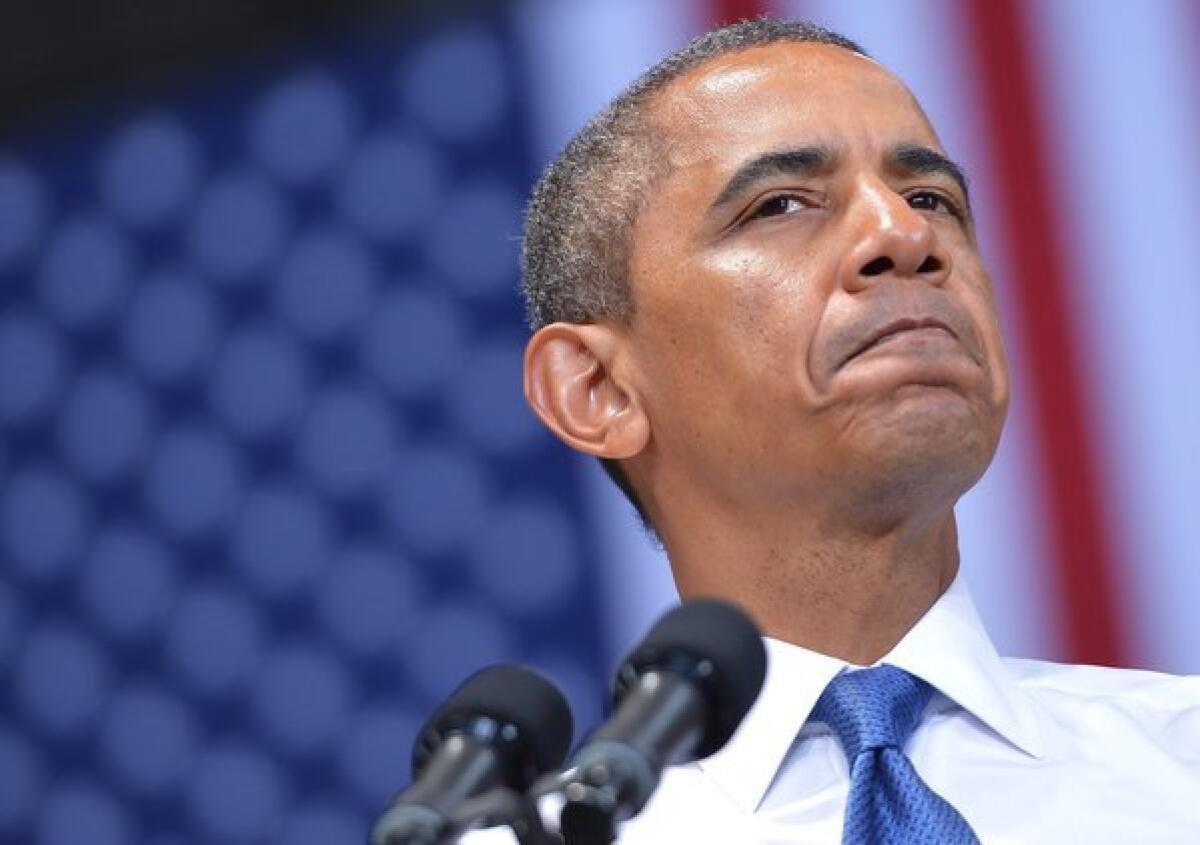Obama’s new/old ‘grand bargain’

President Obama held out a new “grand bargain” to Republicans on Tuesday, offering a tax cut for corporations if the GOP agreed to spend more on job-creating infrastructure and training projects. The president deserves credit for continuing to advocate important investments in the economy in the face of the Republicans’ drive for austerity. But he would be better off presenting new ideas than just repackaging old ones and hoping for a groundswell of public support to change GOP minds.
Speaking at an Amazon warehouse in Chattanooga, Tenn., Obama said that he favors simplifying the corporate tax code by closing “loopholes and special-interest tax breaks.” Doing so, the White House said, would make it possible to lower the top U.S. corporate tax rate from 35% — the highest in the developed world — to a more globally competitive 25% for manufacturers and 28% for the rest of industry. But Obama’s plan also calls for unspecified changes that would raise revenue by billions of dollars in the short term to spend on infrastructure, worker training at community colleges and public-private efforts to spur innovation in manufacturing.
Although the combination was novel, Obama had floated all of those proposals over the last two years, and they seem unlikely to receive a more positive response this time. Frankly, the leaders of Congress’ tax-writing committees are far ahead of the president in pursuing bipartisan, comprehensive tax reform, not just for corporations but for all taxpayers. What remains to be seen is whether those lawmakers will be able to overcome the resistance of entrenched special interests and the dysfunction of their respective chambers.
Obama may have improved the prospects for a tax code overhaul by publicly embracing it for corporations — a constituency that’s hardly beloved by his party. But he overlooked the best argument for it: As Harvard professor Mihir A. Desai has pointed out, those taxes typically are borne by a company’s workers, not its shareholders or customers. Lower corporate rates also diminish the incentive for companies to play global hide-and-seek with their income and assets.
It’s good to see Obama continuing to try to break through the logjam in Congress for the sake of spurring job creation and economic growth, despite the toxic partisanship on Capitol Hill that threatens to bury any plan that bears his name. It’s just hard to expect better results when the president is content to recycle the same proposals that the GOP has been rejecting.
More to Read
A cure for the common opinion
Get thought-provoking perspectives with our weekly newsletter.
You may occasionally receive promotional content from the Los Angeles Times.






